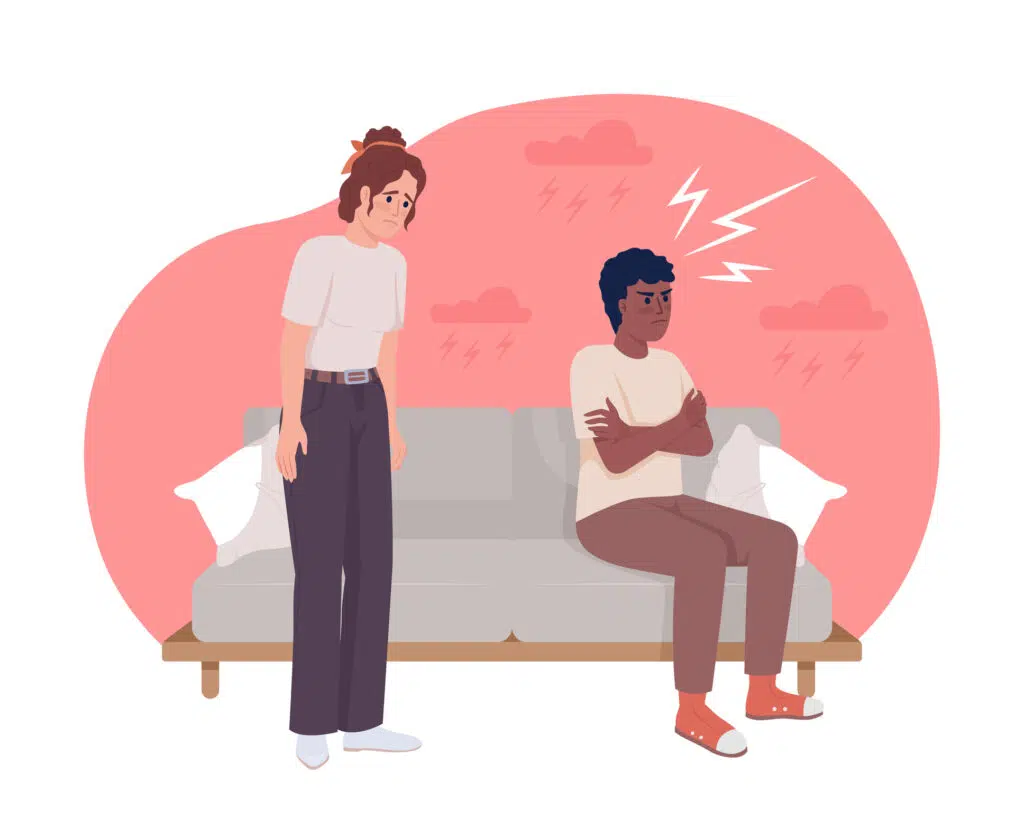How Much Sex Should Partners Be Having?

What Is Sexual Desire And What Controls It?
It’s normal to wonder how much sex couples have and how you and your partner compare to the average. For couples who want sex to be part of the relationship, the physical connection can help them feel more connected and promote bonding. In this article, we look at the latest figures to see how often most couples have sex and how you can express your sexual needs within the relationship.
Sexual desire, libido, or sex drive refers to an individual’s want to engage in sexual activity. Your libido is complex, and it’s influenced by various factors like:
- Stress
- Aging
- Changes in the body
- Health issues
- Hormones
- Tiredness
- Medication
- Relationship problems
Not only can sex drive vary significantly between people, but your own libido can vary depending on your circumstances and preferences. For instance, if you’re dealing with a stressful situation, you can feel distracted by thoughts running through your head. For some, sex is a great stress reliever, and for others, it causes their sex drive to tank. It’s important to understand that partners can want different things depending on the time and the situation.
How Does Sexual Desire Change With Age?
Sexual desire can shift. Normal aging brings about changes that can affect your libido. Men and women commonly experience a gradual drop in libido caused by factors like hormone changes, medication, health problems, and lifestyle behaviors. That’s not to say that a loss of sex drive is a part of aging, just that it’s normal to have a gradual shift. There’s absolutely no reason you can’t enjoy a healthy sex life as you get older.
Typically, studies find that as couples get older, the amount of sex they have can drop. However, as you age, your responsibilities tend to increase from family obligations to work commitments. One study of women over 50 reported three main reasons that significantly affected their sex drive:
- Logistics of organizing sex.
- Problems within the relationship.
- Issues with confidence and self-image related to aging.
How Often Do Most Couples Have Sex?
So, the big question is: how much sex should partners be having?
A 2017 study of over 26,000 people found that the average adult has sex once a week, and the number remained the same for married couples. The results showed that sexual frequency changed with age:
- People in their 20s had sex more than 80 times a year.
- By 45, the sexual frequency had dropped to 60 times per year.
- At 65, the number had decreased to 20 times a year.
Data from the General Social Survey in 2018 found that 25% of couples had sex once a week, 16% had sex 2-3 times per week, and 5% had sex four or more times a week. 10% of participants hadn’t had sex in the last year.
A 2019 UK study found that about half of people in serious relationships have sex less than once a week. Another study published in Social Psychological and Personality Science surveyed 30,000 Americans over 40 years. Researchers found that having sex more than once a week is not associated with any greater well-being.
The research generally points to the average couple having sex about once a week. But, the reality is that there is no ideal number for all couples. Your connection and relationship are unique, and these numbers don’t mean you are having sex too little or too often. Instead, think about the quality of the connection and intimacy you have.
What To Do When Partners Have Different Sexual Needs
The frequency or amount a couple should have sex is down to the individual couple to discuss and agree. There is no one perfect number that you can apply to all couples.
Do you have a higher libido than your partner, or maybe it’s the other way around? It’s normal for sexual desire to shift, or perhaps you feel out of balance with your partner. The most important thing is to speak to your partner about your needs. A healthy and happy sex drive is different for everyone.
Sex is a part of the relationship puzzle, but it’s not the only thing to base the success of a relationship on. Communication, intimacy, feeling connected, respect, and trust are all crucial pillars of a healthy relationship. Try to figure out what works for you as a couple and communicate.
The reason it can feel like sex can bring you together is because sex releases oxytocin. Oxytocin is associated with feelings of love and affection and may play a role in the first stages of romantic attachment.
It can feel incredibly frustrating if you feel like you have a mismatched libido with your partner. But, be patient and honest with each other when it comes to your sexual desires and needs.
Manage Stress In The Relationship
There are plenty of reasons why your sex drive may change. Relationship problems can interfere with your want to engage in sexual activity with your partner. How do you handle stress together? Do you work as a team, or does one of you feel like they take more of the mental load?
Work To Sync Up Sexually
Make a schedule or book in your partner for some alone time. If you’re trying to sync up with your partner sexually, there will likely be some compromises. Redefine what sex means to you as a couple. When you have kids, work, and other commitments, planning sex can help you determine the best time for both of you to have good energy levels. It’s something to look forward to, and can make sure you’re both ready.
Communicate
Like most things, open and honest communication will set the tone to help you both talk about sex freely. When talking about sex, it’s important to be respectful of each other’s feelings, desires, and insecurities. If there’s a specific reason for a low sexual desire, it’s crucial to be patient without judgment to better understand your partner’s perspective. You don’t necessarily need to fully understand your partner’s situation but continue to show empathy and actively listen so you navigate the conversation in a safe space.
Speak To A Therapist
You can try various things to improve your sex life with your partner, from building tension and anticipation to setting aside a date night to reignite your connection and spark. Sometimes, you might be dealing with complex issues or revisiting the same argument repeatedly. Speaking to a couples therapist can help you to determine any problems you may have and formulate a plan to move forward as a team.
If you’re having relationship issues or are unsure how to communicate your needs, speaking to an unbiased third party can help you to explain how you feel in a calm environment. When things aren’t going as well as you would like, sex can be an uncomfortable topic of conversation. If you feel like you would benefit from speaking with a couples therapist, book an appointment online at Thriving Center of Psychology. We have offices in New York, California, Florida, New Jersey, Oregon, Minnesota, Illinois, Massachusetts, and Washington.

How to Move On After a Friendship Breakup
Friendship breakups can sting just as much as a romantic breakup. After all, you’re experiencing a loss of shared history and an understanding of each other that can leave you feeling lonely and isolated. Not all friendships are forever, but moving on from the loss of a friendship does take time and some self-compassion.

Signs You’re in a Toxic Relationship
A toxic relationship can chip away at your well-being and happiness. Toxic partners can be manipulative and charming, making it difficult to recognize the signs that you’re in a toxic relationship. You deserve to be in a supportive and healthy relationship.

10 Common Marriage Reconciliation Mistakes to Avoid After Infidelity
Infidelity can leave couples devastated. If you’ve been affected by infidelity and want to salvage your relationship, rebuild trust, or make a tough decision, keep reading for 10 common reconciliation mistakes to avoid after infidelity.

Survey: 72% of Americans are Stressing About the Upcoming Presidential Election
Political viewpoints in the U.S. have always been contentious, but is the impact of politics in the United States making it difficult for people to live their everyday lives? With some anticipating another brutal and long campaign season ahead of the upcoming 2024 presidential election, nearly half of Americans say politics is negatively impacting their mental health.




